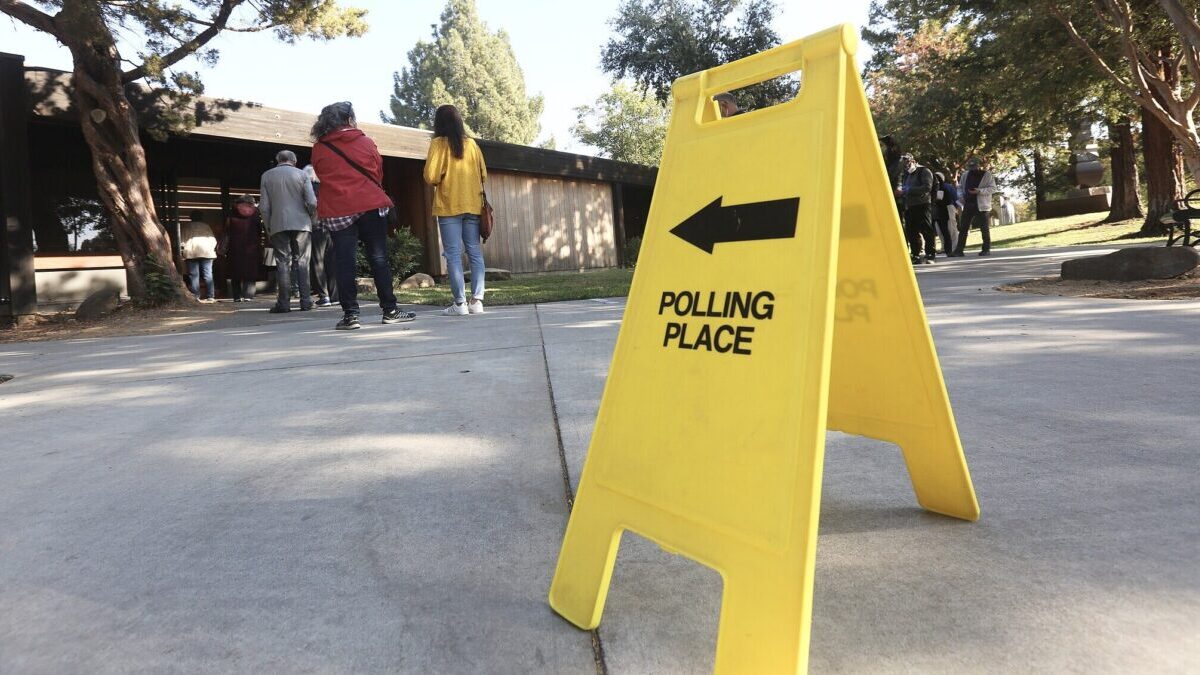On Wednesday, in an email sent to a network of election officials and nonprofit organizations, the Center for Tech and Civic Life (CTCL) announced it would begin efforts to facilitate applications to a massive federal government grant program administered by the Federal Emergency Management Agency (FEMA). This program could potentially funnel more than $700 million to election offices during the 2024 election under the auspices of CTCL officials and their partners in the nonprofit world of left-wing election activism. CTCL is the organization that funneled hundreds of millions of Mark Zuckerberg’s dollars into key election offices to increase Democrat turnout in the 2020 election.
CTCL announced in “ELECTricity,” its regular e-newsletter sent to thousands of election officials who are part of its network, that it will host a webinar on Jan. 25 to assist those officials in applying for FEMA’s 2024 Building Resilient Infrastructure and Communities (BRIC) grant program.
According to FEMA, BRIC is intended to “support[s] states, local communities, tribes and territories as they undertake hazard mitigation projects, reducing the risks they face from disasters and natural hazards.” FEMA states on its website that “BRIC’s available funding is $1 billion (for this grant application cycle), and for Flood Mitigation Assistance, the available funding is $800 million. These funds are intended to help state, local, tribal, and territorial governments address future risks to natural disasters, foster greater community resilience, and reduce disaster suffering.”
During the 2021 BRIC grant cycle (the last year for which figures are available), the program’s two top project types by total project cost were flood control at $1.39 billion and utility/infrastructure protection at $1.26 billion.
The BRIC program, with total spending expected to amount to $1 billion in 2024, presents a unique funding opportunity for election offices, according to CTCL Communications Manager Andra Abbate in an email obtained by the Caesar Rodney Election Research Institute. All previous BRIC grants appear to have been for some form of natural disaster relief.
Nevertheless, CTCL asserts in its email invitation that it will assist election offices in applying for BRIC grants. According to its creative interpretation of the new Bipartisan Infrastructure Law, elections should be classified as a “critical service” deserving of competitive FEMA grant funding. According to the email, “As a core element of government function, elections are a critical service and eligible for this government funding.” The webinar plans to cover the application process, and “will include sample content, as well as inspiration for what the grant funds can be used for.”
What Is CTCL Really Up To?
CTCL burst into the public spotlight in 2020 with its highly controversial $332 million Covid-19 Response Grant Program (Zuckbucks), which was aimed at gaining control of election offices in areas that were of critical importance to Democrats in the 2020 election through large, “strings attached” grants to election offices.
CTCL money financed the takeover of election offices at the city and county level by partisan activists and made those offices a platform to implement preferred administrative practices, voting methods, ballot harvesting efforts, and data-sharing agreements that were favorable to Democrat candidates. Many CTCL-funded election offices then became launching pads for intensive multi-media outreach campaigns and precisely targeted, door-to-door voter turnout and mail-in ballot-chasing efforts in densely populated urban areas packed with potential Democrat voters.
CTCL’s interference in the 2020 election gave rise to a host of laws passed by state legislatures to ban the private funding of election administration. As of Dec., 27 states have passed laws that prohibit, limit, or regulate the use of private or philanthropic funding to run elections.
Democrat election activists are nothing if not ingenious, however. By tapping into a huge reservoir of potential federal funding, CTCL and its partners could skirt the prohibitions against “private funding” of elections, while gaining de facto control over a much larger funding source than could be provided by individual billionaires such as Zuckerberg, all the while using it to mount the same sort of technical, data-driven, and activist-led manipulation of the election system in favor of Democrats that they mounted in 2020.
The Role of Election Offices Does Not Include Increasing Voter Turnout
If election offices are claiming to need “extra” multimillion-dollar grants on top of their normal public funding sources to the tune of CTCL’s $332 million injection of private funding in 2020 (or even more in 2024), it is because they are planning to expand their activities into areas where election offices do not belong. Likely a significant part of the additional funding they will seek will be devoted to the shadowy (and costly) world of high-end data aggregation, statistical analysis, and the implementation of behavioral science solutions to mobilizing potential Democrat voters.
Furthermore, very few — if any — voter turnout operations are nonpartisan in their effect. An election official who acts to increase voter turnout in a D +40 district will expect, on average, to increase the vote margin of the Democratic candidate by roughly 400 votes for every additional 1,000 votes he encourages, since his actions will yield an average of 700 additional votes for the Democrat candidate and 300 votes for the Republican. That’s not baseless speculation; that’s basic statistics. It makes no difference if the content or intent of his actions are nonpartisan.
The purpose of election offices is to maintain the polls and accurately count votes, not to “get out the vote” in their jurisdictions through leveraging extremely valuable “inside” information and providing system access to data analysts and partisan election activists to aid in voter canvassing or targeted ballot harvesting.
Lawmakers should be aware that CTCL and its partners in the Democrats’ “shadow party” appear to be up to mischief once again and should subject their relationship with the BRIC grant program, and public election offices in general, to closer scrutiny, with an eye toward eliminating election interference in 2024 by yet another well-funded cabal of “election fortifiers.”








